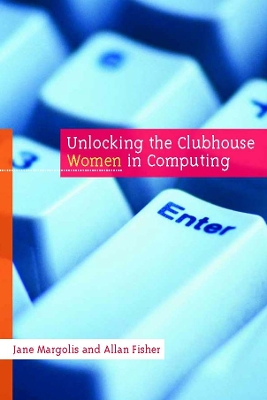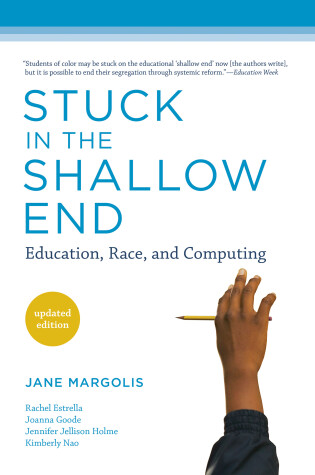The MIT Press
2 total works
Understanding and overcoming the gender gap in computer science education.
The information technology revolution is transforming almost every aspect of society, but girls and women are largely out of the loop. Although women surf the Web in equal numbers to men and make a majority of online purchases, few are involved in the design and creation of new technology. It is mostly men whose perspectives and priorities inform the development of computing innovations and who reap the lion's share of the financial rewards. As only a small fraction of high school and college computer science students are female, the field is likely to remain a "male clubhouse," absent major changes.
In Unlocking the Clubhouse, social scientist Jane Margolis and computer scientist and educator Allan Fisher examine the many influences contributing to the gender gap in computing. The book is based on interviews with more than 100 computer science students of both sexes from Carnegie Mellon University, a major center of computer science research, over a period of four years, as well as classroom observations and conversations with hundreds of college and high school faculty. The interviews capture the dynamic details of the female computing experience, from the family computer kept in a brother's bedroom to women's feelings of alienation in college computing classes. The authors investigate the familial, educational, and institutional origins of the computing gender gap. They also describe educational reforms that have made a dramatic difference at Carnegie Mellon-where the percentage of women entering the School of Computer Science rose from 7% in 1995 to 42% in 2000-and at high schools around the country.
The number of African Americans and Latino/as receiving undergraduate and advanced degrees in computer science is disproportionately low. And relatively few African American and Latino/a high school students receive the kind of institutional encouragement, educational opportunities, and preparation needed for them to choose computer science as a field of study and profession. In Stuck in the Shallow End, Jane Margolis and coauthors look at the daily experiences of students and teachers in three Los Angeles public high schools: an overcrowded urban high school, a math and science magnet school, and a well-funded school in an affluent neighborhood. They find an insidious “virtual segregation” that maintains inequality.
The race gap in computer science, Margolis discovers, is one example of the way students of color are denied a wide range of occupational and educational futures. Stuck in the Shallow End is a story of how inequality is reproduced in America—and how students and teachers, given the necessary tools, can change the system. Since the 2008 publication of Stuck in the Shallow End, the book has found an eager audience among teachers, school administrators, and academics. This updated edition offers a new preface detailing the progress in making computer science accessible to all, a new postscript, and discussion questions (coauthored by Jane Margolis and Joanna Goode).

